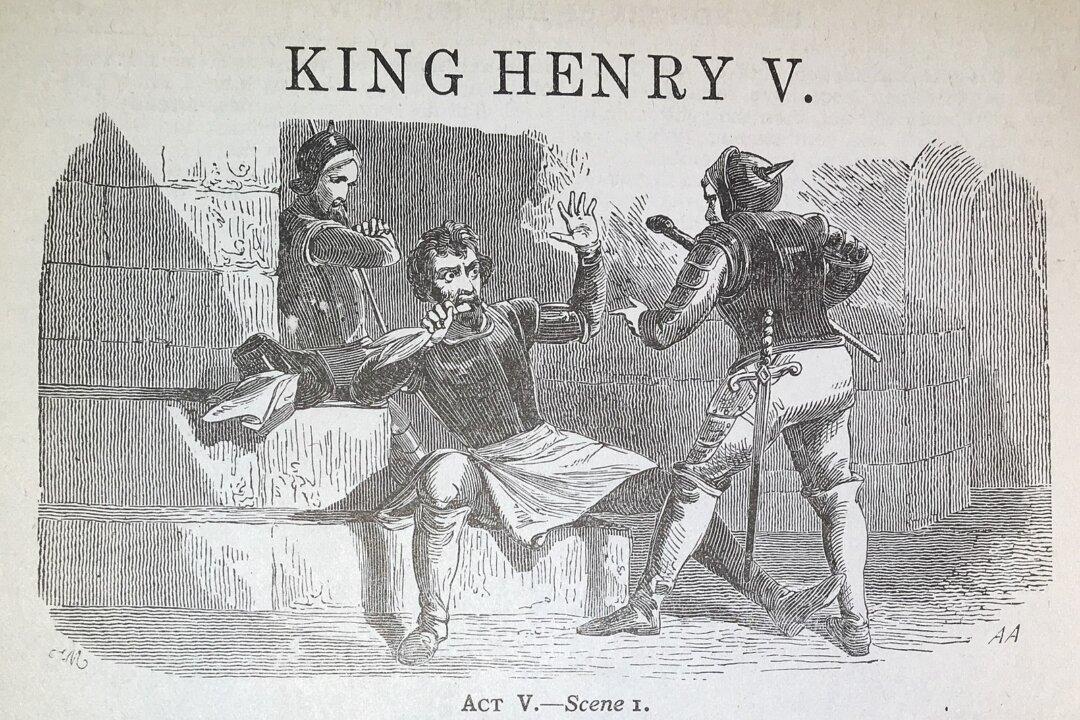William Shakespeare’s play “Henry V” is one of his most popular history plays. In addition to the appeal of its lovely poetry, heroic protagonist, and epic events set during the Hundred Years’ War, the play also provides some profound meditations on the nature of leadership that we can all benefit from.
The play is concerned most of all with what makes a good king, and therefore what makes a good leader. As Shakespeare scholar Giddeon Rappaport wrote in his book “Appreciating Shakespeare,” “‘Henry V’ is a thrilling dramatization of what makes for excellence in a good king. In Henry, Shakespeare’s ideal king, we find virtue, justice, self-knowledge, wit, the power to inspire his followers, and humility before God.”






